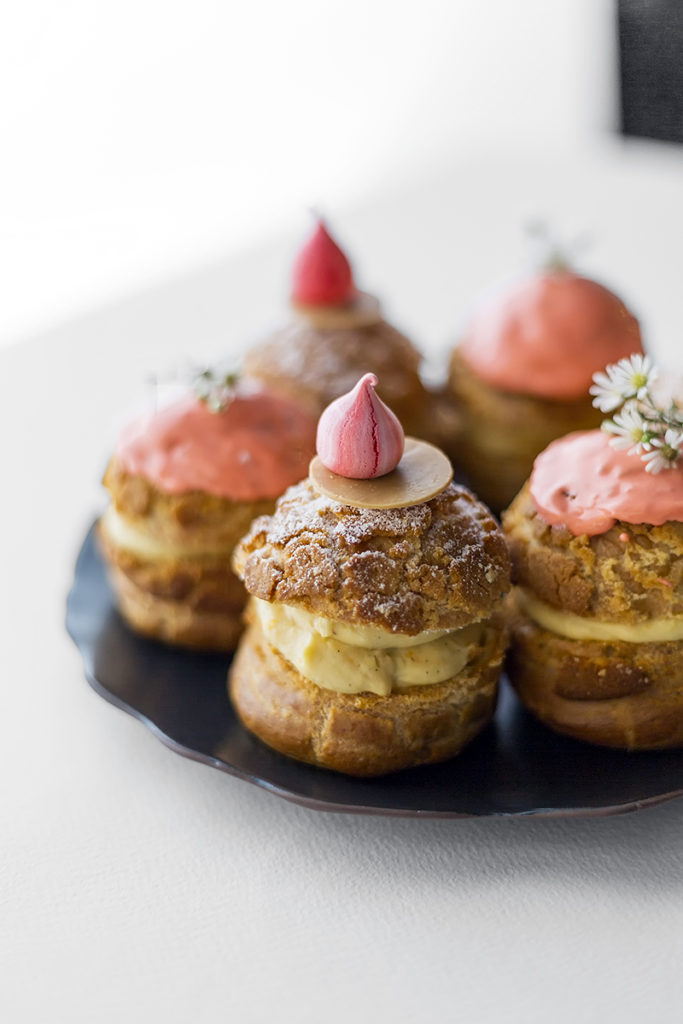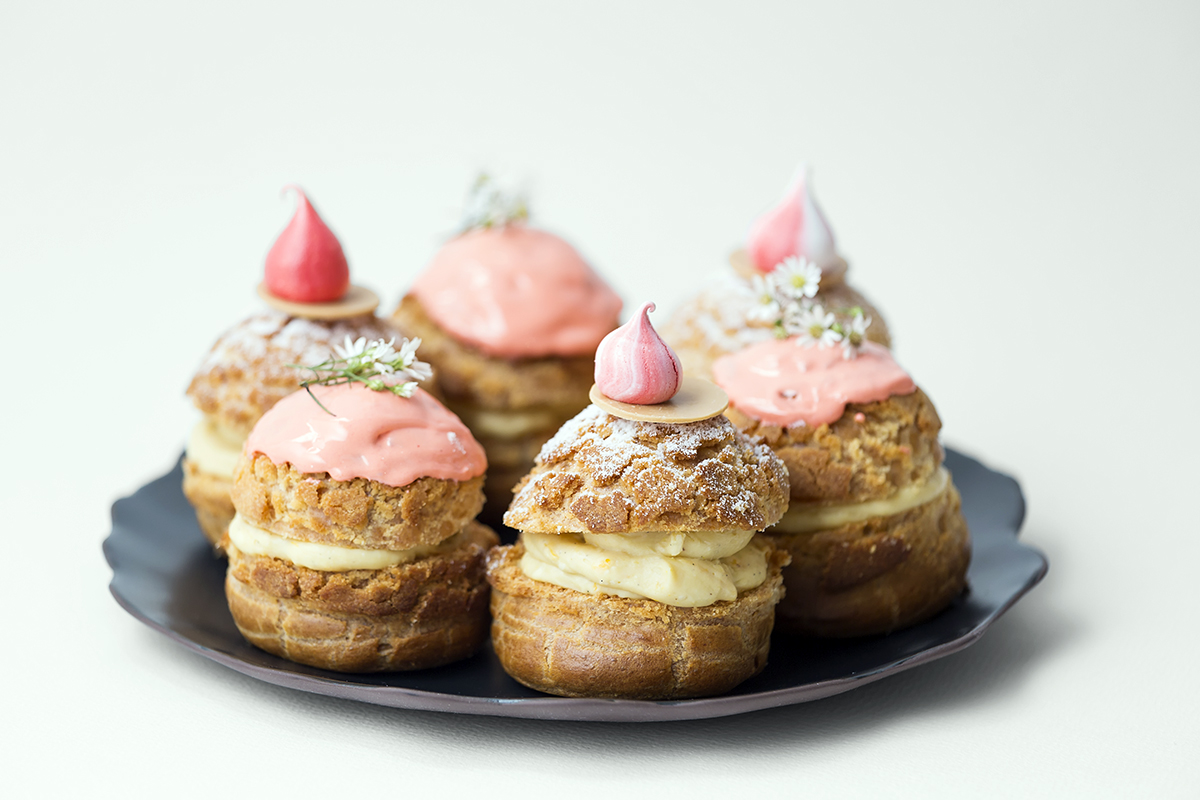Innovation doesn’t always have to be making something out of nothing. Sometimes, it can also come from something that already exists. You can turn to the classics and play with flavor combinations that already exist and have proven to work.
More tropical fruits are making their way to the mainstream market. And while there are many to choose from locally, taking inspiration from another cuisine and introducing an unfamiliar mix into desserts has a high chance of exciting more palates.
With a blend of Spanish, Caribbean, and Native American techniques and flavors marking their cuisine, the Cubans love incorporating their tropical fruits and root vegetables into many of their dishes. One perfect example is the Pernil Relleno de Moros y Cristianos, which uses orange juice to marinade a chunk of pork shoulder then stuffed with rice before being oven roasted. A number of their savory dishes also come with tostones or twice-fried green plantains.
It’s no different when it comes to their desserts. A great proof of this is their version of a fruit turnover, which they call pastelitos or empanada. And among the most popular sweet variety is a flaky dough that’s filled with guava compote and cheddar cheese. That’s the inspiration behind this dish, made even more refined and interesting by the addition of another big flavor trend, florals.
Cuban brest
Makes 1 10-inch round pastry
Prep time 1 hour
Baking time 1 hour
Craqueline
Ingredients
- 56 grams unsalted butter, softened
- 67 grams light brown sugar
- 63 grams all-purpose flour
Procedure
In a mixing bowl, combine unsalted butter and light brown sugar. Fold until combined. Add flour and roughly mix. Transfer to a working surface and press until spread out. Place plastic wrap on top and roll out the craquelin ideally 1-cm thick. Let cool in the refrigerator until ready for use.
Pate au choux
Ingredients
- 130 grams all purpose flour
- 2 grams salt
- 113 grams unsalted butter
- 120 grams whole (full fat) milk
- 120 grams water
- 5 grams granulated white sugar
- 4 large eggs (total weight 220 grams without the shells) at room temperature, lightly beaten
Procedure
Preheat oven to 400 degrees F (200 degrees C). Place the rack in the center of the oven. Line a baking sheet with parchment paper. Draw an 8-inch (20 cm) circle on the parchment paper to use as a guide when piping the choux pastry.
In a bowl, sift together flour and salt. Set aside. Place butter, milk, water, and sugar in a heavy saucepan over medium heat. Bring to a boil. Remove from heat and with a wooden spoon or heatproof spatula, quickly stir in the flour mixture. Place your saucepan back over medium-low heat and stir constantly until the dough comes away from the sides of the pan and forms a smooth, thick ball (about 3 minutes).
Transfer dough to an electric mixer fitted with a paddle attachment. Beat on low speed for a minute or two to release the steam from the dough. Once the dough is lukewarm, start adding the lightly beaten eggs, in small additions. Continue to mix until you have a smooth, thick shiny paste. You will notice that the dough will separate and then come together. Continue to mix until you have a smooth, thick paste that will fall from a spoon in a thick ribbon.
Transfer the paste into a large piping bag fitted with a large plain tip (#4). Pipe a 1-inch (2.5 cm) thick ring of dough just inside the 8-inch (20 cm) circle drawn on the parchment paper. Pipe another 1-inch (2.5 cm) thick ring inside the first ring, making sure the rings of dough are touching. Pipe a final ring of dough on top, along the center seam, between the first two rings of dough. Top with craqueline.
Bake for 15 minutes and then reduce the oven temperature to 350 degrees F (180 degrees C). Bake for a further 40-45 minutes or until the choux pastry is golden brown in color, puffed, and crisp. Do not open the oven door while the choux pastry bakes or it might deflate. Turn the oven off, leave the oven door slightly ajar, and leave the choux pastry in the oven so the shell can further dry out (about 30-45 minutes). Remove from oven and finish cooling on a wire rack.

Orange blossom and cheese cremeux
Ingredients
- 480 grams milk
- 4 egg yolks
- 75 grams + 5 grams granulated sugar
- 30 grams all-purpose flour
- 30 grams cornstarch
- 2 teaspoons pure vanilla extract
- a pinch of salt
- 75 grams unsalted butter
- 75 grams unsalted butter, softened
- 8 grams orange blossom water
- zest and juice of half an orange
- 75 grams finely grated Parmesan cheese
- 75 grams finely grated sharp cheddar cheese
Procedure
In a bowl, cream egg yolks and granulated sugar. Sift in all-purpose flour and cornstarch. Whisk until smooth. Stir in vanilla and a pinch of salt. Set aside.
In a thick-bottomed saucepan, combine milk, orange zest, and orange juice over low heat. Pour a quarter of the warm milk mixture into bowl and whisk to combine. Add cream to pan with warm milk. Place over medium heat and bring to a boil, whisking constantly until mixture thickens. Remove from heat. Stir in unsalted butter. Mix until combined. Transfer to a heat-proof bowl and let cool.
In another bowl, place softened unsalted butter. Add cooled cream mixture and whisk until smooth. Cool down mixture completely. Fold in the cheeses and the orange blossom water
Keep chilled until ready for use.
Guava marmalade
Ingredients
- 225 grams fresh pink guava puree
- 110 grams water
- 6 grams lemon juice
- 75 grams white caster sugar
- 8 grams apple pectin powder
Procedure
In a small bowl, combine sugar and pectin. Set aside. In a thick-bottomed saucepan over medium heat, combine water, guava purée, and lemon juice until 80 degrees C in temperature. Stir in the sugar mixture. Stir until thickened. Cool down until ready for use.
Assembly
Place cremeux in a pastry bag fitted with a small plain round nozzle. Slice the choux in half. Pipe some of the cremeux on each pastry. Fill with guava marmalade, then top with more cremeux. Dip the top half of the choux in chocolate if desired. Top with other half of the choux. Decorate with orange blossom and choco decor.
Originally published in F&B Report Vol. 14 No. 1





